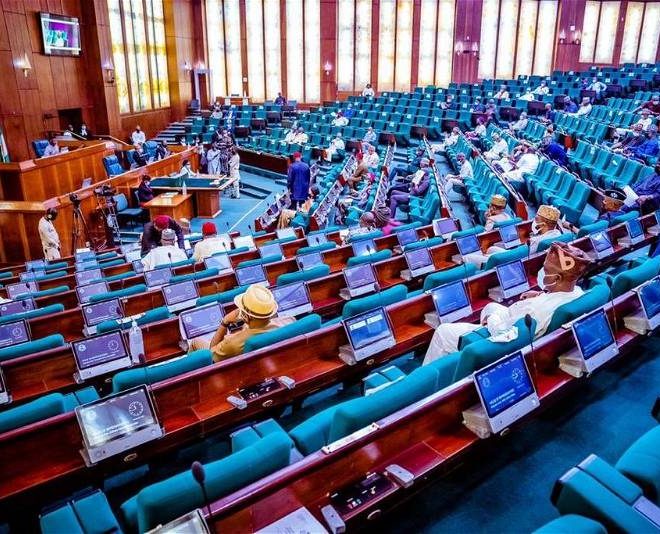The House of Representatives has raised concerns about the financial management of the Federal Polytechnic in Ugep, Cross River State. The newly established polytechnic, which started in 2021, has only 142 students but employs 154 staff. Despite its small size, the institution has spent over N600 million on salaries and operational expenses. In addition, it spent another N38 million on local travel.
The findings came to light during an oversight meeting when the polytechnic’s Rector, Professor Edward N. Okey, presented the institution’s financial records. He explained that the polytechnic used part of its N2 billion start-up grant to renovate an old secondary school as its temporary campus, and it has since begun building permanent structures for its programs. The funds were also used to construct the School of Engineering, a perimeter fence, and a guest house, along with buying a vehicle for the Rector.
He said: “Our school was established in 2021 and were to start the school at a temporary site in the state Polytechnic called Institute of Technology and Management (ITM). But, when we got there, we could not get the state Polytechnic to start the school.
“The first challenge we had was to identify a temporary site to start the school. That took us more than a year, because Ugep is not a big town and get a school for us to start was not an easy task.
“After going around the village, we ended up with dilapidated buildings of a secondary school called Ugep Community Secondary School. The Principal of that school told us that, those buildings were abandoned for 25 years. So, we have to renovate those buildings. It took us more than one year to renovate those buildings for us to start.
“We started about different 10 projects on the permanent site. Some are at different levels of completion. But getting students and staff in Ugep has not been an easy task, because of some kind of stigma that Ugep carries.
“Even my Council members, the first set, refused to come to Ugep to hold meetings because they are scared of Ugep because Ugep used to have a tradition of eating people. But, that was hundreds of years ago.
“That doesn’t happen again. But, once there is a stigma, its difficult to erase. We have been working to erase that stigma, the people need the school. They need that exposure, but to attract students is not easy.
“Since we started, it was just last month that we were able to take over the school. The state polytechnic in Ugep started in 2012 by former governor, Liyel Imoke. Since 2012, they have a total number of 63 students, and that tells you the difficult nature of the place.
“We started with 16 students, but this year, we have admitted 63, bringing the number to 79. So, invariably, we have performed more than the school that started 12 years ago. Now, we have a total of 142 because took over the students and staff of ITM”.
The spending raised concerns among committee members, with some questioning the practicality of such large expenditures for such a small student body. One committee member even compared the polytechnic to a village primary school that has more than 500 students, suggesting that the polytechnic’s operations were not sustainable.
However, a member of the Committee, described the spendings by the institution as a waste and unsustainable, saying, “It is high time we tell ourselves the truth. If you have 142 students, that’s like an Elementary school. In my village, we have a primary school. The students there are more than 500.
“A Polytechnic, a federal Polytechnic for that matter having 142 students and your personnel is N496 million, almost N500 million, for a school that has 142 students. Your overhead is N159 million, for a school that 142 students. Your Capital is N25 million. What is the justification for all these spendings?”.
Committee Chairman Fouad Laguda expressed his disappointment over the situation, criticizing the polytechnic’s inefficient use of public funds. This discovery highlights the need for better financial oversight and accountability in new educational institutions, ensuring that taxpayer money is spent wisely.
He said: “We called schools from South-South for an oversight and… Not one of the schools met the required requirements or did what was expected. Considering the fact that you had over a week notification.
“But you’ve been aware over two months ago that your turn was going to come. Because we’ve been doing this oversight function for a while. Out of seven schools, one of the schools is not even here today. Out of the six schools, only three came with half-baked reports. Three others were not prepared for us.
“And we took our own time, left every other thing that we had to do. To ensure this day, this exercise sees the light of the day. We are going to request that you’re going to come back.
“See the clerk after now to give you requirements of what is expected of your budget review. We would, in less than a week, will recall you here to come and make this presentation.”
The findings also shed light on the challenges faced by newly established institutions in managing resources and scaling their operations to match the number of students they serve. As the House of Representatives continues to monitor educational spending, there will likely be greater pressure on institutions like the Federal Polytechnic in Ugep to demonstrate fiscal responsibility and efficiency.







